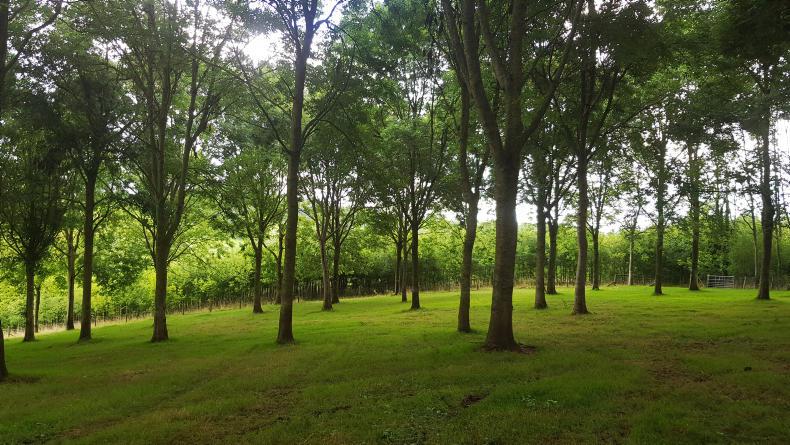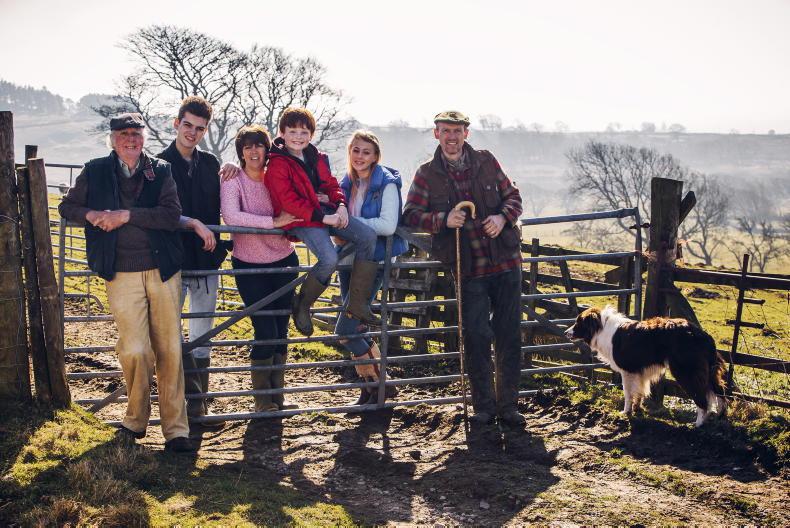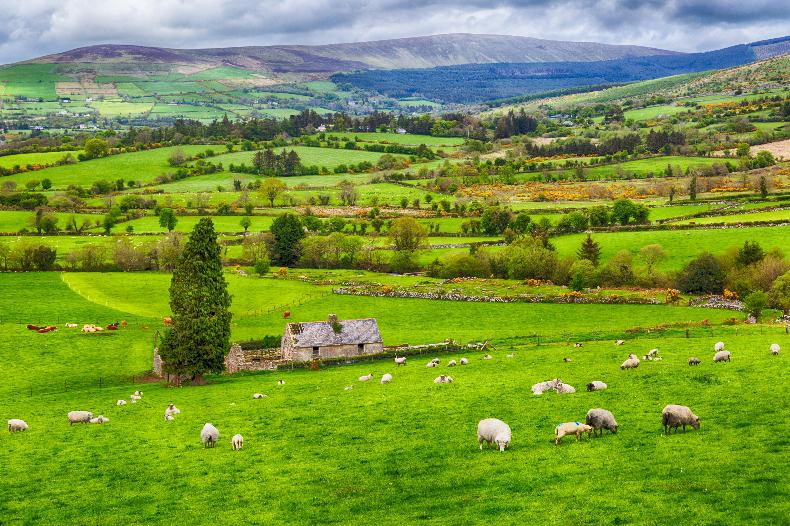Almost 21,000 farmers have forestry on their farms. As first-generation farm forest owners, the crop husbandry, financial and taxation elements of this crop are new. It is vital that forest owners take taxation into account and all owners should seek independent advice from their tax advisers.
Government policy as regards taxation in the area of forestry covers all relevant taxes:
1 Income tax.
2 Corporation tax.
3 Capital gains tax.
4 Capital acquisitions tax.
5 Stamp duty.
6 VAT.
Substantial reliefs are available which significantly increase the attractiveness of forestry as a land use option.
1 Income tax
All premia income from forestry are exempt from income tax to individuals and corporations. Planting grants and road construction grants are equally exempt. Income from timber sales is also exempt from Income tax. In order to qualify for the exemptions, the forests must be occupied and managed on a commercial basis with a view to the realisation of profits.
However, PRSI and universal social charge (USC) are chargeable on both premia income and timber sales.
The high earners income tax restriction was abolished in 2016.
2 Corporation tax
Corporation tax is not payable on profits derived from forest premia or the sale of harvested timber. Furthermore, companies paying dividends out of exempted forestry profits are not obliged to apply dividend withholding tax, and any such dividend received by an individual is exempt from income tax, but subject to PRSI and USC.
3 Capital gains tax (CGT)
For individual owners that sell a forest, CGT is chargeable on the lands only and not on the growing crop. In other words, where land is sold with timber standing on it, any gain on the land is liable for CGT but the gain from the timber is not. Therefore, the value of the transaction should always be split between the crop and the land. This exemption does not apply to companies.
4 Capital acquisitions tax (CAT)
Commercial forests are subject to CAT on gifts to, or inheritance by individuals regardless of the residence or domicile of the disponer and beneficiary. However, relief is available to commercial forests as “agricultural property”. The relief as a reduction in market value is as follows:
A flat rate reduction of 90% applies to both gifts and inheritance of commercial forests.All gifts and inheritance between husband and wife are exempt from CAT.The woodlands or forests can be located in any member state of the EU and still attract agricultural relief.Asset test conditionality of agricultural relief applies to forestry whereas the active farmer test does not.
Where a beneficiary of a gift or inheritance cannot qualify for agricultural relief due to the asset test, there is potential for business relief if the forestry is managed on a commercial basis. This allows for a 90% discount on the taxable value of the gift or inheritance.
Owners with forests approaching clear fell should consider transferring the forestry to sons or daughters prior to harvesting as this is one of the most tax efficient ways of transferring wealth. The recipient must retain the forest for six years but can sell and re-purchase replacement forests in that period. Sale of timber in the six year period does not affect the relief.
5 Stamp duty
The sale of growing timber in commercial forests is exempt from stamp duty but the sale of the underlying land is not. This is provided that the forest occupies not less than 75% of the land area and is managed on a commercial basis.
6 VAT
Forestry is deemed to be a farming activity. Farming activity income of VAT unregistered farmers is eligible for a 5.4% flat rate VAT refund. This is particularly important in the case of timber sales, forest owners should clarify whether prices are inclusive or exclusive of flat rate VAT.
Forest owners should plan well in advance of clear-felling to make sure all bases are covered.
For example, when planning harvesting, all owners are advised to ensure that it doesnt impact on their ability to apply for third level grants for their children.
Likewise, there are implications for the Fair Deal Scheme that must be taken into consideration. Good advice from the right people will be money well spent.
Disclaimer: The information provided in this proposal is for illustrative purposes only and all readers are advised to secure their own tax advice before proceeding. No liability shall apply to the authors in relation to the views/opinions expressed herein.
Paddy Bruton is managing director of Euroforest Ireland and Forestry Services Ltd. He is a member of the Society of Irish Foresters and the Agricultural Consultants Association.
Read more
Is spending to reduce tax a good investment?
REPS Series: farmers have their say on the new REPS scheme
Almost 21,000 farmers have forestry on their farms. As first-generation farm forest owners, the crop husbandry, financial and taxation elements of this crop are new. It is vital that forest owners take taxation into account and all owners should seek independent advice from their tax advisers.
Government policy as regards taxation in the area of forestry covers all relevant taxes:
1 Income tax.
2 Corporation tax.
3 Capital gains tax.
4 Capital acquisitions tax.
5 Stamp duty.
6 VAT.
Substantial reliefs are available which significantly increase the attractiveness of forestry as a land use option.
1 Income tax
All premia income from forestry are exempt from income tax to individuals and corporations. Planting grants and road construction grants are equally exempt. Income from timber sales is also exempt from Income tax. In order to qualify for the exemptions, the forests must be occupied and managed on a commercial basis with a view to the realisation of profits.
However, PRSI and universal social charge (USC) are chargeable on both premia income and timber sales.
The high earners income tax restriction was abolished in 2016.
2 Corporation tax
Corporation tax is not payable on profits derived from forest premia or the sale of harvested timber. Furthermore, companies paying dividends out of exempted forestry profits are not obliged to apply dividend withholding tax, and any such dividend received by an individual is exempt from income tax, but subject to PRSI and USC.
3 Capital gains tax (CGT)
For individual owners that sell a forest, CGT is chargeable on the lands only and not on the growing crop. In other words, where land is sold with timber standing on it, any gain on the land is liable for CGT but the gain from the timber is not. Therefore, the value of the transaction should always be split between the crop and the land. This exemption does not apply to companies.
4 Capital acquisitions tax (CAT)
Commercial forests are subject to CAT on gifts to, or inheritance by individuals regardless of the residence or domicile of the disponer and beneficiary. However, relief is available to commercial forests as “agricultural property”. The relief as a reduction in market value is as follows:
A flat rate reduction of 90% applies to both gifts and inheritance of commercial forests.All gifts and inheritance between husband and wife are exempt from CAT.The woodlands or forests can be located in any member state of the EU and still attract agricultural relief.Asset test conditionality of agricultural relief applies to forestry whereas the active farmer test does not.
Where a beneficiary of a gift or inheritance cannot qualify for agricultural relief due to the asset test, there is potential for business relief if the forestry is managed on a commercial basis. This allows for a 90% discount on the taxable value of the gift or inheritance.
Owners with forests approaching clear fell should consider transferring the forestry to sons or daughters prior to harvesting as this is one of the most tax efficient ways of transferring wealth. The recipient must retain the forest for six years but can sell and re-purchase replacement forests in that period. Sale of timber in the six year period does not affect the relief.
5 Stamp duty
The sale of growing timber in commercial forests is exempt from stamp duty but the sale of the underlying land is not. This is provided that the forest occupies not less than 75% of the land area and is managed on a commercial basis.
6 VAT
Forestry is deemed to be a farming activity. Farming activity income of VAT unregistered farmers is eligible for a 5.4% flat rate VAT refund. This is particularly important in the case of timber sales, forest owners should clarify whether prices are inclusive or exclusive of flat rate VAT.
Forest owners should plan well in advance of clear-felling to make sure all bases are covered.
For example, when planning harvesting, all owners are advised to ensure that it doesnt impact on their ability to apply for third level grants for their children.
Likewise, there are implications for the Fair Deal Scheme that must be taken into consideration. Good advice from the right people will be money well spent.
Disclaimer: The information provided in this proposal is for illustrative purposes only and all readers are advised to secure their own tax advice before proceeding. No liability shall apply to the authors in relation to the views/opinions expressed herein.
Paddy Bruton is managing director of Euroforest Ireland and Forestry Services Ltd. He is a member of the Society of Irish Foresters and the Agricultural Consultants Association.
Read more
Is spending to reduce tax a good investment?
REPS Series: farmers have their say on the new REPS scheme









SHARING OPTIONS